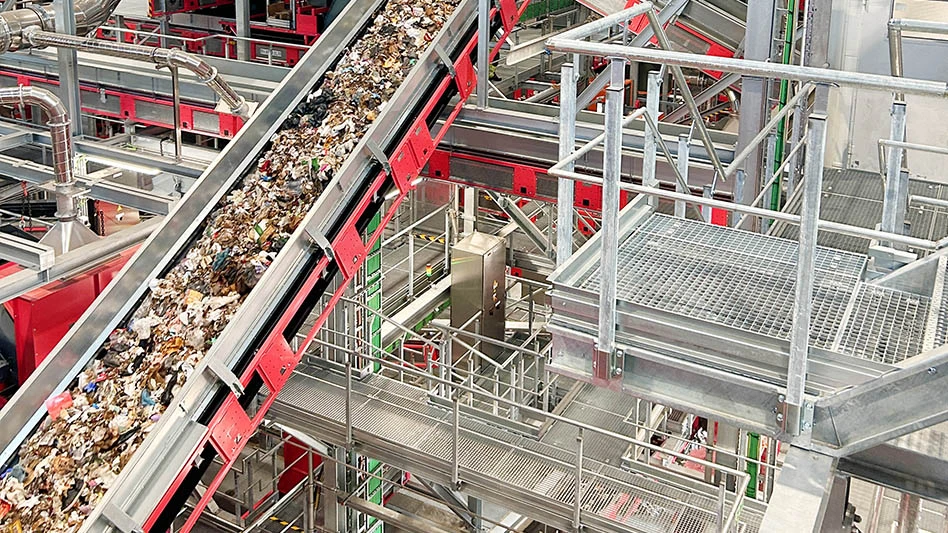
(c) Convisum | Dreamstime.com
Last week, Illinois Gov. JB Pritzker signed into law the Large Event Facilities Act in an effort to reduce single-use plastic pollution and food scrap waste.
The legislation requires large event facilities with legal occupancies of at least 3,500 people to provide attendees with recycling and composting bins. Those found in violation of the law will face fines between $750 and $1,500 for the first offense and $2,500 for each subsequent offense, according to state officials.
Previously, large event facilities in Illinois were not required to recycle or compost material.
“Policies like these are such a great example of how environmentally friendly decisions are often also economically beneficial decisions,” says state Sen. Karina Villa, who spearheaded the effort. “For instance, Illinois is already home to 110,000 recycling jobs. By embracing more recycling opportunities, as we do in this legislation, we can see recycling create up to 10 times the jobs in landfilling, and composting can create up to four times as many jobs.”
The Large Event Facilities Act applies only to permanent structures such as convention centers and stadiums, and the law goes into effect Jan. 1, 2025.
According to a news release from the Illinois Environmental Council, the state lags behind others in removing food scrap from the waste stream. The group estimates that of the stream, nearly 20 percent is organic material and 23 percent is food scrap, noting only 13 percent and 1 percent are diverted from landfills, respectively.
The IEC also says more than 22 million pounds of plastic end up in the Great Lakes annually, with half that amount in Lake Michigan.
“IEC is grateful to Gov. Pritzker, Sen. Karina Villa and especially Rep. Curtis Tarver for their leadership in bringing Illinois another step further in our collective journey toward making Illinois more responsible and efficient when it comes to waste management,” IEC Executive Director Jen Walling says.
“Illinois has a long history of championing recycling and composting programs, but we still have a long way to go. Our state generates approximately 19 million tons of garbage a year, which is 23 percent more waste per capita than the average state in the U.S. Sadly, only 37 percent of this waste material is ever recycled. This new law will help us make much-needed progress in reducing plastic pollution and climate warming methane emissions.”
Get curated news on YOUR industry.
Enter your email to receive our newsletters.
Latest from Waste Today
- US Senate backs reduced cuts to EPA
- ELV Select Equipment, Reworld aid NYPD in secure firearm disposal
- Waste Connections announces Q2 results
- Returnity and Cosmoprof to address reusable bag waste
- SWANA releases report on aging WTE facilities
- New economic assessment reveals cost benefits of California’s SB 54
- Premier Truck Sales & Rental opens new facility
- TeknTrash Robotics, Sharp Group partner on humanoid robot pilot





